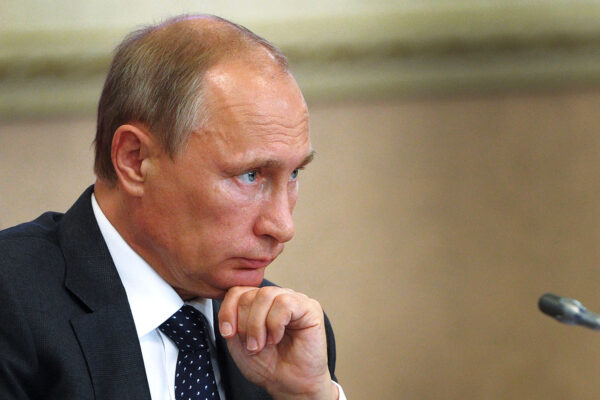
Alexander Lukashenko could have gone down in history as the father of the Belarusian state. Now “Europe’s last dictator” is on his last leg. A rigged election has unleashed unprecedented protests.
Desperate, Lukashenko has turned to his ally, Vladimir Putin, for help. Belarusian state media report that Russia has promised to provide military assistance if Lukashenko asks for it. This has sparked speculation that Russia might intervene in Belarus much as it did in Ukraine when its Russia-friendly president, Viktor Yanukovich, was ousted in 2014.
That doesn’t seem likely. In fact, Russia may be better off with Lukashenko gone.
Why intervene?
Unlike Ukraine’s 2004 Orange Revolution or the Euromaidan uprising of 2014, the protests in Belarus don’t have an anti-Russian element. Without a single EU or NATO flag being waved at the demonstrations, Putin has no reason to fear “losing” Belarus.
That could change if the protests turn pro-Western, but — unlike Ukraine — Belarus doesn’t have a history of finding itself “in between” Russia and the West.
Gustav Gressel of the European Council on Foreign Relations explains that Belarus isn’t a “neutral” country, like Switzerland or Sweden, or even a “buffer state”. It clearly leans toward Russia.
Belarus is the third largest country in Russia’s post-Soviet counterpart to NATO, the Collective Security Treaty Organization. It has a sizable ethnic-Russian minority and most Belarusians speak Russian as their first language.
Lukashenko is better gone than in power
Putin’s relationship with Lukashenko hasn’t been as warm as their countries’ alliance would suggest. Belarus hosts a Russian radar station and communications center, but Lukashenko has never agreed to a full-blown military base. Nor has he made good on promises to merge Belarus and Russia into a Union State.
Russia is Belarus’ most important trading partner. Translating economic into political influence may require a new leader, one who isn’t as entrenched and independent-minded as Lukashenko.
Lack of alternatives
The time for nipping the protests in the bud is gone. Lukashenko’s attempted crackdown has only made the situation worse, inviting pressure and scrutiny from abroad. For Russia, there is no quick fix. Sending in “little green men” would solicit a backlash from the Belarusian opposition and the international community. Rescuing Lukashenko Yanukovich-style (the former Ukrainian leader lives in Russia) would alienate Belarusians and could motivate the very turn to the West Putin wants to avoid.
His best bet is to stay out. Let events run their course and Russia might end up in a stronger position than it is now.
When Armenians took to the streets in 2018 and ousted the long-ruling Serzh Sargsyan, Russia cheered them on. Opposition leader Nikol Pashinyan, formerly a Russia critic, has become a stalwart ally as prime minister.
